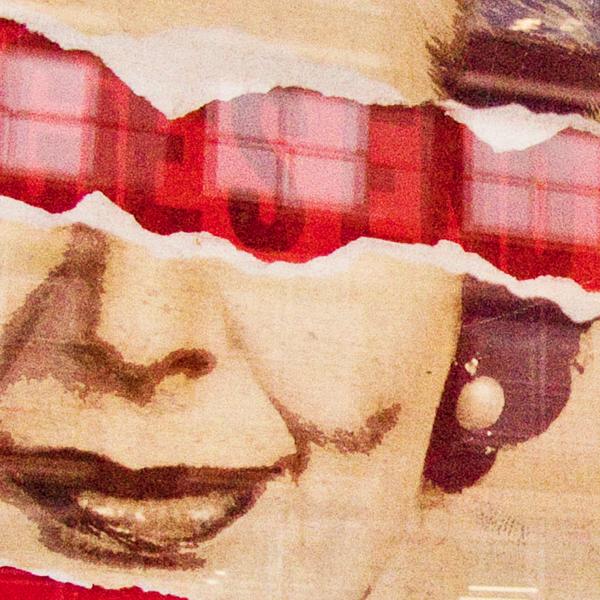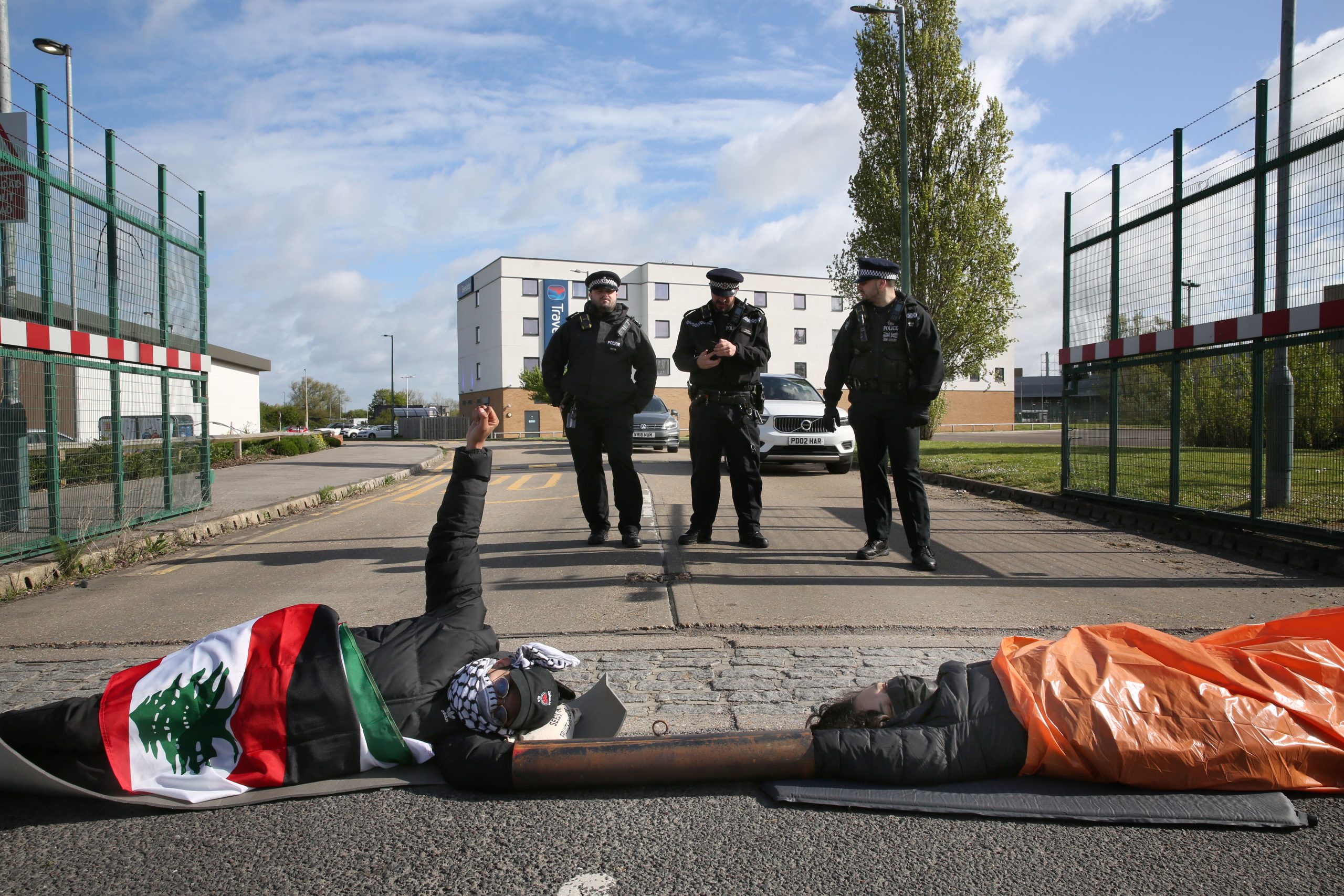Following a question posed by Labour supporters about anarchist responses to the policy proposals of what became the Attlee Labour government, below we reproduce Freedom’s front page article from June 2nd 1945.
Vote – What For?
At last, after a decade during which a parliament elected to maintain peace has fought the bloodiest war in history against the principal imperialist rival of the British ruling class, and a hardly less ruthless war against the liberties of the British workers, we are told that the revered constitution of Britain will once more be taken out of the cupboard; the people will again have the pleasure of electing whichever gang of politicians is to filch away their freedom and prepare by power politics for the next world conflict in which they or their sons will die.
Before we go on to discuss the particular issues of this forthcoming election, it is perhaps desirable to enquire why it is being held at this time. The ostensible reason for the election is the decision of the Labour Party conference to end the coalition immediately and to withdraw the Labour Ministers from the National Government. This decision was made because Winston Churchill had sent an “ultimatum” to the Labour Party putting forward the alternatives of either continuing the Coalition to the end of the Japanese war or ending it immediately. It is interesting to note that neither side is willing to accept the responsibility for the decision. The Conservative leaders and their press blame the Labour Party for not accepting the offer to continue the Coalition to the end of the Japanese war. The Labour leaders and their press blame the Conservatives for patting the Labour Party on the spot by making the alternative between an immediate election and an indefinitely long Coalition which the Labour rank-and-file would not be willing to support. These earnest attempts to pass the buck imply a recognition of the distrust which the politicians expect will be awakened in the average elector as a result of this sudden precipitation of the country into an election at a time when the maximum disorganisation still exists and when a very high proportion of the electorate will not be able to vote.
The Trojan Horse
In fact, there is reason to believe that the leaders of both parties were equally to blame for the springing of the election at this time, and that the apparent causes were largely manufactured. It is reasonable to suppose that Churchill’s Labour colleagues were fully aware that Churchill was about to produce his so-called “ultimatum,” and that they had given at least tacit agreement. Certainly, given the mood of discontent among the rank=and-file of the Labour Party, the decision to break up the Coalition immediately instead of carrying it on indefinitely was a foregone conclusion, and it seems probable that the Labour Party Conference was quite deliberately chosen as the Trojan horse by which the idea of an election could he brought to the people. Obviously, the workers are less likely to be suspicious of an election if it is demanded by a body claiming to represent the working class in general, than if it is dictated by the fiat of a largely discredited government.
Given the probability that the election decision was “managed” by an agreement between the leaders of all parties, we have still to discover their reason for such a precipitate election. The principal function of the election seems to be that of diverting the attention of the workers from the immediate problems and issues of their daily life, about which they are already showing a great deal of discontent, and to provide a safety valve which will prevent them from resorting to really effective methods for changing their conditions and bringing about their liberation from the state of military and industrial slavery in which they live. In the background move the sinister developments of European power politics, from which the politicians are no doubt very anxious to divert the immediate attentions of the people under their control.
It is obvious that, after the neurotic outbursts of relief on VE-day, the people of Britain are rapidly coming to realise just how phoney the peace is. Already, on the morrow of so-called victory, food rations have been cut once again, and we are informed that fewer clothes will be available, while cigarettes have gone into short supply. “Peace”, for the time being at any rate, seems to be a leaner condition than war, and, in the meantime, the process of release from military and industrial conscription appears to be scheduled to last for a good many years before it is finally ended. Meanwhile, the housing shortage becomes steadily more acute, and the tensions within industry, which were largely suppressed by such collaborationist institutions as the joint production committees, are steadily coming to a head.
After six years of war the workers expect something concrete. They are not likely to be put off tor very long with such sops as the ending of the blackout, the abolition of the regulation against leaving oars in boats, or the granting of small quantities of petrol to middle-class car-owners. Already the incidence of strikes in industry has risen, and sympathy for the strikers seems much greater than it was during the war itself. A wide movement of direct action, which might well assume other forms than strikes, is what the leaders of all parties fear most of all, because it is the only kind of movement which can directly menace their own power and interests. Therefore they are prepared at all costs to divert the people from such actions, and an election, which gives the illusion of making a change in the existing set-up, and gives the ordinary man the feeling that he is actually doing something positive towards improving his conditions, is an obvious manoeuvre of this kind. It is a fair certainty that the pretence of party struggle which an election arouses will provide a compensation for direct action which will stave off trouble for at least some months after the election.
Fear Of Responsibility
The fact that many of the people nominally entitled to vote will in fact not he able to do so is probably an added reason for holding the election at the present juncture. The majority of the people who win be disabled from voting will be working class people who would be more likely to vote Labour than Conservative. This fact will give the Tories a fair chance of winning and a certainty, at the worst, of being in a large minority. It will also satisfy the disinclination of the Labour leaders to take power on their own responsibility. If Labour win the election, it is probable that their majority will be so slight that they can only hold power with the help of some centre group, and already the idea of a Lib Lab coalition is being canvassed. This would be a very pleasant solution for the Labour leaders, because they would be able to enjoy the fruits of power, while they could always blame circumstances or the Liberals for their failure to bring about any positive improvements in the conditions of the working class. Indeed, such a solution would probably help the Tories as well, for they in turn could make a powerless Socialist government the scapegoat for any oppressive measures the ruling class found necessary in a situation of post-war turmoil, just as the German Social Democrats were made to take the responsibility for the crushing of the genuine working class movements of post-1918 Germany.
What, in fact, is the choice offered in the election to the workers of this country? The Tories speak with a number of voices, to suit every taste. Lord Beaverbrook and his followers talk loudly of the elimination of all controls, by which, of course, they mean the elimination of the controls which wartime managerialism has imposed on individual capitalism. They do not, however, advocate the elimination of that most evil control of individual liberty, military conscription. The “Left” Conservatives, led by such figures as Quintin Hogg, talk of limited controls, which really means that they favour the monopoly capitalist against the individual capitalist. Meanwhile, Churchill’s “caretaker” cabinet, with its array of big industrial nabobs and young scions of the peerage, is a foretaste of the kind of class cabal which a Tory victory at the polls would foist upon the people.
Labour Imperialists
The programme of the Labour Party, except for the talk of nationalising public utilities and the Bank of England, reads very like a pre-war Conservative election platform, with its demands for continued conscription and for a system of tariffs with imperial preference. Even the nationalisations advocated by the Labour Party are nothing like so drastic as those put into practice by the Nazis in Germany, and it looks as though the Labour Party are really anxious to save private capitalism from the results of its own weaknesses. We have always contended that the Labour Party is as imperialist in its fundamental interests as the Tories. We did not, however, forsee that they would admit it quite so naively.
There is nothing much to be read between the lines of the political speeches and programmes. The intentions of the leaders of both parties are obvious. They intend to maintain a war-time economy and a war-time society, in peace time as well as in war, and for this purpose to suppress individual freedom as far as possible. You will find that both sides demand conscription and tariffs, which mean militarism and imperialism, which in their turn mean another war in a measurable space of time.
There is really no choice so far as the worker is concerned between good and bad in this election. The fundamental identity of the interests of politicians was never so clearly shown as at the present time. And, whichever party comes into power, the pursuit of these interests will ensure that neither peace nor freedom will be the result of their rule.
Already, in Europe, the activities of politicians are sowing the seeds of imperialist conflicts. Trieste, Piedmont, the Dodecanese, Syria, Austria, are added to the existing centres of conflict in Greece, in Poland and in Germany. The pre-war disputes over colonies are returning in the feverish atmosphere of San Francisco. And within every country, including England, the war against the common people goes on relentlessly.
Boycott The Election
The function of the election is not to give the common man the chance of deciding how this chaos shall be solved or even of how be himself shall be governed. That will be decided for him by whomever is elected, regardless of election promises or programmes. The true function of the election is to deceive him, and, by giving him a false impression of his power to change things by making a cross on a piece of paper, to divert his attention from those events in the world which would mould his life and may bring his death.
The workers should ignore the elections and keep away from the voting booths. Their liberation from want, war and oppression will not come through the phantom battles of the ballot, but through their own direct action, their own refusal to co-operate any longer in a system that sacrifices their lives to the double evils of authority and property. They can begin by boycotting the means by which their enemies try to trick them into accepting their chains; they should end only when they have destroyed the institutions in whose interests such deceptions are employed.
This article is taken from the Freedom Press Newspaper Archive, a digitisation project aiming to give anarchists free access to our 133-year store of historic writing.
Main Pic: Sketch titled “The Election Rush” by John Olday








